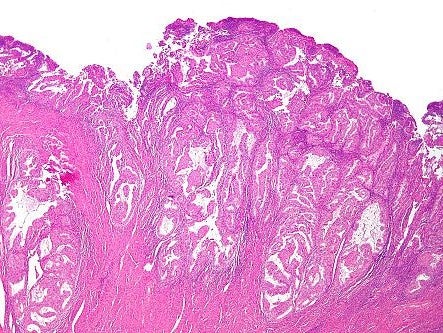
GlaxoSmithKline (GSK) oncology subsidiary Tesaro has unveiled promising data from its Phase I/II Garnet study evaluating dostarlimab as a monotherapy for endometrial cancer.
The data was presented at the Society for Gynecologic Oncology (SGO) Annual Meeting on Women’s Cancer in Honolulu, Hawaii.

Discover B2B Marketing That Performs
Combine business intelligence and editorial excellence to reach engaged professionals across 36 leading media platforms.
Results from the Garnet study showed clinically meaningful and durable response rates to dostarlimab across the entire advanced or recurrent endometrial cancer population regardless of microsatellite instability (MSI) status.
The trial studied dostarlimab on 125 patients, 41 with microsatellite instability-high (MSI-H) endometrial cancer, 79 with microsatellite stable (MSS) cancer and five with an unknown MSI status.
The overall response rate in the entire population was 30%, 49% in the MSI-H population and 20% in the MSS group. Disease control rate was 53% in the full population, 63% in the MSI-H group and 47% in the MSS group. The median duration of response has not yet been reached.
Dostarlimab, which was previously known as TSR-042, is a humanised anti-programmed death (PD)-1 monoclonal antibody. The safety and tolerability of dostarlimab is consistent with other anti-PD-1 therapies.

US Tariffs are shifting - will you react or anticipate?
Don’t let policy changes catch you off guard. Stay proactive with real-time data and expert analysis.
By GlobalDataTesaro president and chief operating officer Mary Lynne Hedley said: “Currently, treatment options for women with advanced or recurrent endometrial cancer are limited, with only one FDA-approved agent for a subset of these patients.
“We intend to use this and other data from the Garnet study to seek regulatory approval of dostarlimab to potentially address the critical unmet treatment needs of women whose disease has progressed.
“The data presented today evaluating dostarlimab in women with recurrent/advanced endometrial cancer, combined with earlier data in patients with non-small cell lung cancer, reinforces the potential of dostarlimab in treating patients with a variety of solid tumours.”
A biologics license application for dostarlimab is planned for the end of 2019.
The Garnet trial is also investigating the efficacy of dostarlimab monotherapy in other solid tumours, such as non-small cell lung cancer. Results were presented at the 2018 Society for Immunotherapy of Cancer annual meeting.




